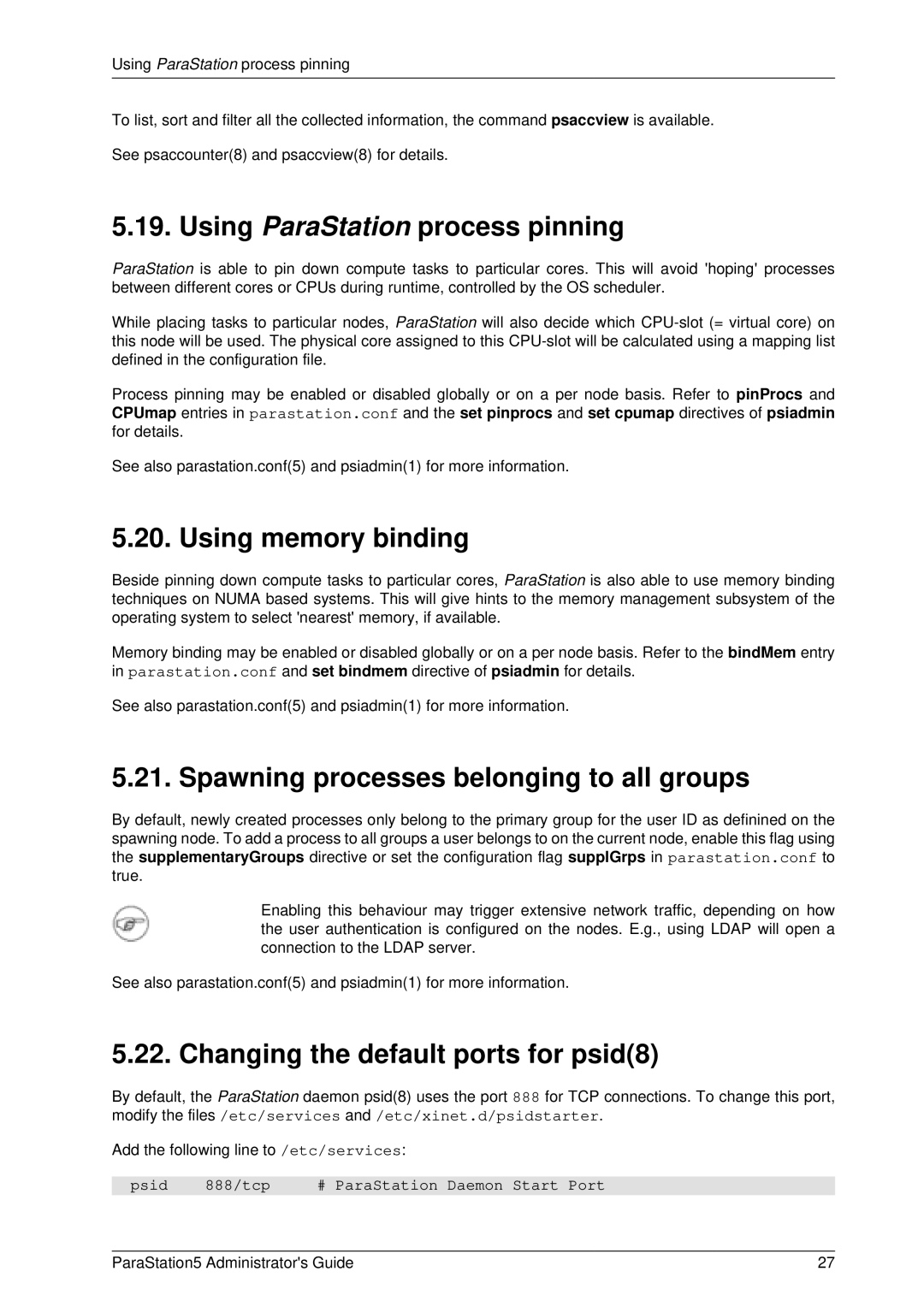
Using ParaStation process pinning
To list, sort and filter all the collected information, the command psaccview is available.
See psaccounter(8) and psaccview(8) for details.
5.19. Using ParaStation process pinning
ParaStation is able to pin down compute tasks to particular cores. This will avoid 'hoping' processes between different cores or CPUs during runtime, controlled by the OS scheduler.
While placing tasks to particular nodes, ParaStation will also decide which
Process pinning may be enabled or disabled globally or on a per node basis. Refer to pinProcs and CPUmap entries in parastation.conf and the set pinprocs and set cpumap directives of psiadmin for details.
See also parastation.conf(5) and psiadmin(1) for more information.
5.20. Using memory binding
Beside pinning down compute tasks to particular cores, ParaStation is also able to use memory binding techniques on NUMA based systems. This will give hints to the memory management subsystem of the operating system to select 'nearest' memory, if available.
Memory binding may be enabled or disabled globally or on a per node basis. Refer to the bindMem entry in parastation.conf and set bindmem directive of psiadmin for details.
See also parastation.conf(5) and psiadmin(1) for more information.
5.21. Spawning processes belonging to all groups
By default, newly created processes only belong to the primary group for the user ID as definined on the spawning node. To add a process to all groups a user belongs to on the current node, enable this flag using the supplementaryGroups directive or set the configuration flag supplGrps in parastation.conf to true.
Enabling this behaviour may trigger extensive network traffic, depending on how the user authentication is configured on the nodes. E.g., using LDAP will open a connection to the LDAP server.
See also parastation.conf(5) and psiadmin(1) for more information.
5.22. Changing the default ports for psid(8)
By default, the ParaStation daemon psid(8) uses the port 888 for TCP connections. To change this port, modify the files /etc/services and /etc/xinet.d/psidstarter.
Add the following line to /etc/services:
psid | 888/tcp | # ParaStation Daemon Start Port |
ParaStation5 Administrator's Guide | 27 |
